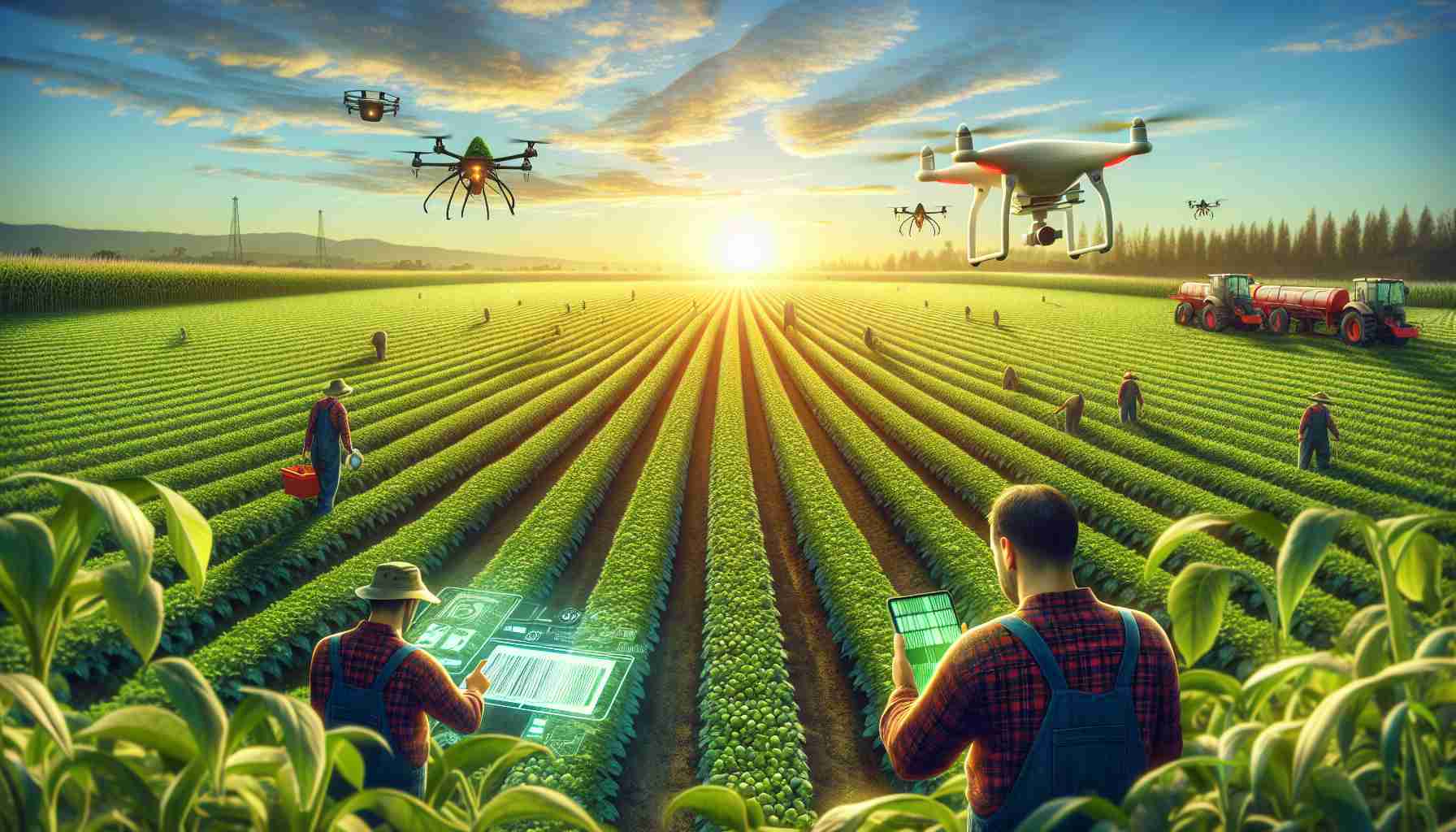In a picturesque setting at a modern agricultural demonstration garden, a variety of colorful peppers and tomatoes stand out in a sea of greenery. These vibrant fruits and vegetables are not only visually appealing but also backed by innovative technology. Each produce item is marked with a QR code, symbolizing the integration of full-chain digital traceability by a leading tech company. Consumers can effortlessly trace every step of production and distribution by scanning the QR code with their smartphones. This digital “identification card” ensures consumer confidence and boosts product sales.
The agricultural demonstration garden in this region specializes in the cultivation of tomatoes and peppers, utilizing cutting-edge greenhouse technologies to optimize production. Embracing a model of “lead enterprise + professional operation + finance + farmers,” the garden cooperates with technology giants to advance traceability in agricultural products. The digital traceability platform incorporates IoT, GIS, and blockchain to achieve precise traceability management across planting, processing, quality inspection, logistics, and sales.
Through the comprehensive digital traceability platform, each batch of fruits and vegetables in the demonstration garden is accompanied by detailed planting records, environmental data, processing information, and more. Consumers can gain a holistic understanding by scanning the traceability QR code on the products. The platform not only enhances consumer trust but also offers visualization capabilities, allowing consumers to view real-time information about the cultivation base of their purchased fruits and vegetables.
Furthermore, the implementation of full-chain digital traceability significantly boosts consumer trust in the produce and has led to increased sales for the garden. After three months of platform operation, fruit and vegetable sales in the garden surged by 30%. By leveraging data analytics on the platform, producers can better understand market demands and consumer preferences, enabling them to adjust production and sales strategies, ultimately reducing costs and increasing profits.
By embracing digital traceability, the agricultural demonstration garden aims to enhance product quality from the source, drive standardization within the planting area, and expand sales channels. Collaborating with technology partners, they are working on establishing a regional public brand to promote local specialty products online through platforms like JD.com. This initiative seeks to address challenges faced by small enterprises and farmers in reaching consumers directly and bring high-quality agricultural products to dining tables across the region.
Revolutionizing Agricultural Practices: The Role of Digital Traceability Technology
As the agricultural sector continues to evolve, the integration of digital traceability technology has become a cornerstone in revolutionizing traditional practices. While the previous article highlighted the benefits of digital traceability in enhancing consumer trust and increasing sales, there are additional facets to consider in this technological transformation.
Key Questions and Answers:
– How does digital traceability technology impact supply chain transparency?
Digital traceability technology provides real-time visibility into the entire supply chain, enabling stakeholders to track the journey of agricultural products from farm to table. This transparency fosters accountability, improves food safety, and ensures traceability in case of contamination or recalls.
– What are the challenges associated with implementing digital traceability in agriculture?
One major challenge is the initial investment required for adopting and integrating digital traceability systems. Additionally, ensuring data privacy and security, standardizing traceability protocols across different regions, and overcoming resistance to change from traditional actors in the agricultural value chain are crucial hurdles to address.
Advantages and Disadvantages:
– Advantages: Digital traceability technology facilitates improved quality control, enables targeted marketing based on consumer preferences, reduces food waste through better inventory management, and enhances sustainability practices by optimizing resource utilization.
– Disadvantages: Some disadvantages include the potential exclusion of small-scale farmers who may lack access to or afford expensive traceability systems, the reliance on technology that may be susceptible to malfunctions or cyberattacks, and the challenge of ensuring universal adoption and interoperability among various stakeholders.
While digital traceability technology holds immense potential in transforming agricultural practices, it is crucial to navigate the associated challenges and controversies to realize its full benefits. By addressing issues of affordability, data security, and interoperability, stakeholders can harness the power of technology to create a more resilient and transparent agricultural ecosystem.
For further insights into the intersection of technology and agriculture, explore resources from agriculture.com.
























